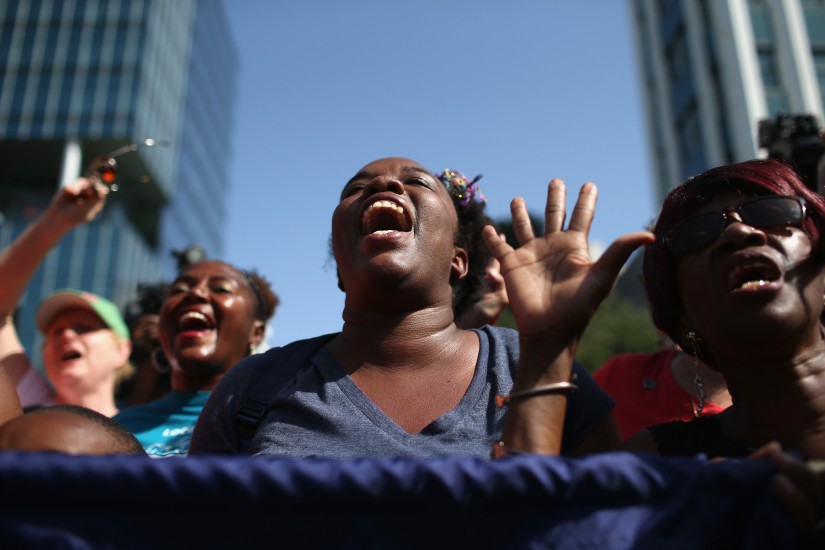Lottie Joiner Why did you feel the flag needed to be taken down?
Bree Newsome On one hand there is a kind of general history that's represented by the Confederate flag and then it resonated for me in a personal way. My ancestors were enslaved in South Carolina. I know their names. This is not something that's abstract for me in any kind of way. I grew up with my grandmother who was raised in Greenville, who told me about her experiences seeing the Ku Klux Klan beat her neighbor and things like that. The massacre in Charleston brought a refocus on the flag.
Lottie Joiner Why did you choose that day? Did President Obama’s call for the removal of the flag encourage you to do it or had you decided before then that you would take it down?
Bree Newsome We [Charlotte activists] actually decided before. The Tuesday before [I scaled the pole] we had a meeting. There were about 10 to 12 of us activists who were on the ground that day involved in the action who, prior to the massacre happening in Charleston, had had previous conversations about how we would like to take the flag down in South Carolina, but it wasn't a concrete plan. It was just something as people who had grown up in the Carolinas this was just something that has always been an issue.
I was riding down to Columbia to take the flag down when I was listening to [President Obama’s] eulogy and it only confirmed for me that we were doing the right thing — very much in the spirit of the history of civil disobedience and the history of the civil rights movement in this country. We were doing it very much with that historical awareness. This flag was raised in 1961 really as a statement against the civil rights movement that was going on at the time. Then here we were with a kind of new modern civil rights movement going on and here we are, this attack on a black leader in a church.
